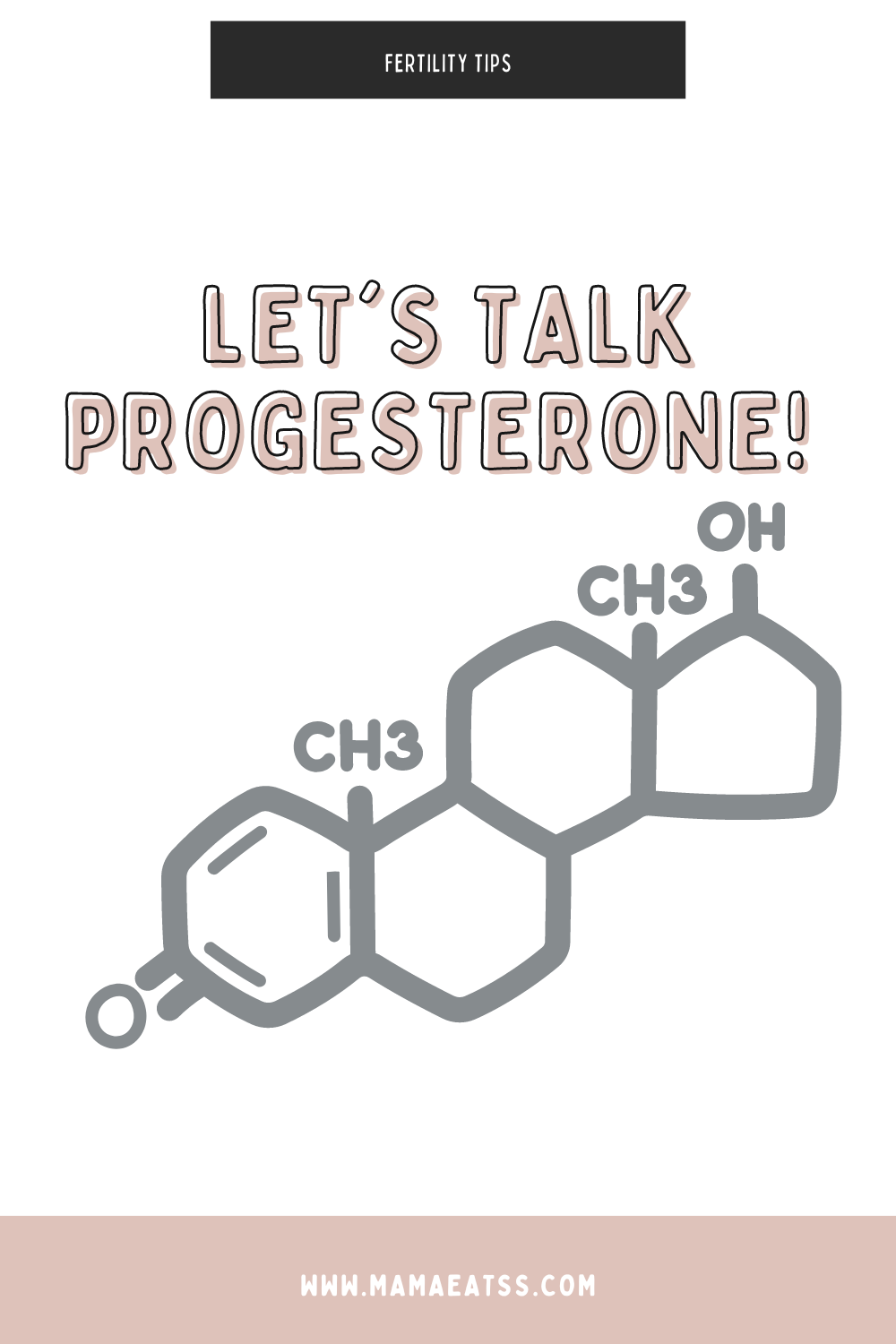Let's talk progesterone!
THE ‘RELAXING’ HORMONE
Progesterone has tons of important functions in the body! It is a relaxing hormone and helps to make a nice sticky endometrium lining for a fertilized embryo to implant and grow.
But it also has some pretty important other functions as well..
-thyroid function
-helps the nervous system function/ reduces cortisol
-detoxification
-anti-aging
-is calming on the brain, reduces anxiety, enhances memory
-supports the cardiovascular system
-reduces inflammation
-can reduce the risk of certain cancers like breast cancer and endometrial cancer
LET'S RECAP HOW WE MAKE IT
Each month in the first half of our cycle, follicle stimulating hormone and estrogen begin to rise. This helps to prompt a cohort of follicles to begin growing. Eventually, one of those follicles becomes the dominant follicle and with the help of estrogen continues to grow and develop.
When estrogen reaches its highest point, that triggers the brain to release luteinizing hormone which causes the egg to erupt into the fallopian tubes. That empty sac that the egg was housed in becomes the corpus luteum. As your egg travels down your tubes the corpus lutuem is pumping out progesterone.
In a healthy cycle, estrogen drops at ovulation and progesterone rises. The corpus luteum will continue to make progesterone until you get your period.
The two biggest problems I see women having it that a) they aren't ovulating and therefore not making progesterone or b) they ovulate but are missing out on key nutrients and living in a stressed state and the corpus luteum doesn't produce enough progesterone to support implantation. This would look like a shortened luteal phase (10 days or less from the time you ovulate until your period).
SO WHAT CAN WE DO?
IMPROVE OVULATION
Ovulation is a very nutrient rich process. Nutrients in the sense of vitamins and minerals. Nutrients in the sense of protein, carbs and fat. Nutrients in the sense of enough calories.
You can't have a strong ovulation if you aren't giving your body what it needs.
The corpus luteum develops quickly and requires energy! Particularly in the form of protein, carbs and fat all of which play a crucial role to help provide energy, structure and hormones!
It also needs vitamins and minerals! Particularly Vitamins A, C,
D, E, K, B Vitamins, Copper, Zinc, Selenium, Magnesium and Potassium.
2. LIMIT STRESSORS (aka FIND WAYS TO RELAX)
If we are living in a stressed state then our body will never prioritize our reproductive health because it is just trying to keep us alive!
When cortisol is high, estrogen will be high! Progesterone is also the precursor to cortisol and will get used up if we are constantly running on stress hormones.
When it comes to stress we HAVE to reduce it in our everyday lives.
This means getting sunlight, limiting blue light exposure, reducing toxins, eating breakfast, balancing blood sugar, eating nutrient dense bioavailable foods, exercising smart, eating enough and getting adequate sleep.
3. BALANCE BLOOD SUGAR
We need to keep our blood sugar in check if want a healthy cycle! This means we need to balance protein, carbs and fat with EVERY meal and snack.
We also need to focus on eating every 3-4 hours to avoid blood sugar dropping (which is a stressor)!
I find most women (especially those who find themselves waking between 2-4am) need a bedtime snack!
4. HEAL YOUR GUT!
When our digestion is compromised it can cause TONS of issues with our hormones! When we have leaky gut in particular it allows pathogens to enter the bloodstream and travel around the body. These pathogens can travel to the ovaries and the corpus luteum and cause big time issues!
Some big ways to heal your gut is to incorporate digestive bitters, a spore based probiotic, digestive enzymes, and gut healing foods like slippery elm (throat coat tea is a great source), gelatin & bone broth.
Supporting the liver will also be important and ways to do is is eating within 30 minutes of waking, dandelion root tea and castor oil packs!
Helpful foods for healthy hormones
Raw Carrot Salad! Binds excess estrogen and removes it from the body! Same with cooked white mushrooms!
Beets support bile production and liver function
Pomegranates help to inhibit the production of estrogen
Red grapes also help block the production of estrogen
Bone broth contains glycine which promotes the production of progesterone.
Liver is PACKED with a variety of nutrients to support progesterone production.
Citrus Fruits- packed with vitamin C to support a healthy corpus luteum!
Other food favs… eggs, oysters, avocado, grass fed butter, sweet peppers, cooked greens!
Try implementing some of these tips to promote progesterone production!
xoxo,
Meghan

